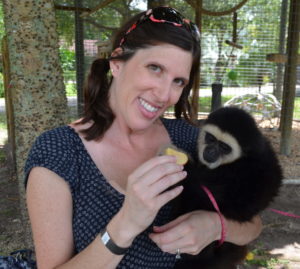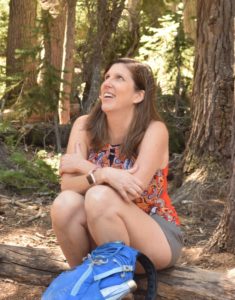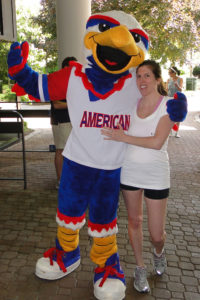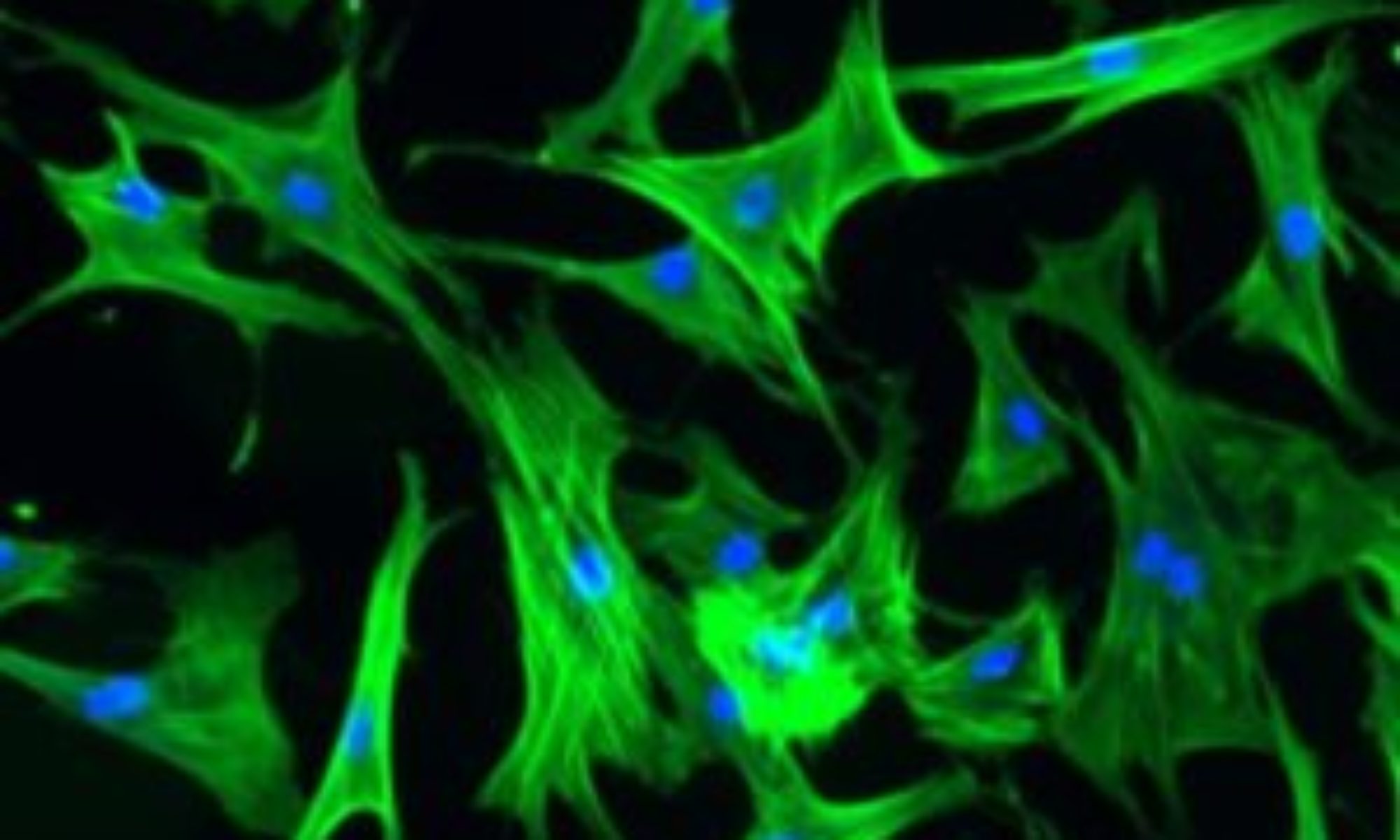
Katie describes her house growing up as being like “Dr. Doolittle” as her dad loved animals and took in any needy animal. She grew up with dogs, rabbits, fish, a guinea pig, a parakeet, many turtles (most rescued from the road), and a huge birdhouse for homing pigeons. The apple doesn’t fall far from the tree, as she inherited the same love for animals!

Katie’s home was always close to the D.C. area–originally from Bowie, Maryland, where she grew up as no stranger to the joys of Maryland’s great hikes, boating, and of course blue crabs.
After earning her B.S. in biochemistry from Virginia Tech, Katie went on to complete a Ph.D. in Nutritional Sciences from Penn State. She says she chose to start a career at American University because of the “perfect balance” maintained between research and teaching opportunities.
The DeCicco-Skinner lab within the Bio Department is often also dubbed the “cancer lab.” When asked about what motivated her to start researching cancer, Katie states that her father’s diagnosis (while she was in college) was the primary force. Though she finds the area of research as a whole intriguing to learn about, Multiple Myeloma and Squamous Cell Carcinoma in particular captured her interest because of the complexity of their signaling pathways. At first glance, she says, MM and SCC seem like very different cancers, but they instead “have a lot of similarities” namely: the underlying role of molecular signaling pathways, drug resistance mechanisms, and involvement of the immune system.
When questioned about some of the biggest challenges of working with each project, Katie cites raising stem cells for the multiple myeloma project. Compared to normal cells, stem cells are “finicky” to culture. Further, they come from individual patients, which fascinatingly means that they can behave slightly differently based on who they come from.
For the SCC project, however, Katie discusses a different challenge. In fact, she has stated that those who are easily frustrated should steer clear of working with signaling pathways. Cellular pathways are very complex, as there are many (many) proteins that can interact with and influence each other. Unexpected and complicated findings are common. Yet, sometimes outlook can make all the difference. Katie encourages approaching these unexpected findings by remembering that science is about following the data where it leads, not about how well it follows preconceived notions.
In fact, she attributes some of these unexpected findings to have led to “our most significant results.”
 Katie states that her approach to mentoring students is unique for each student, as a one-size-fits-all approach doesn’t recognize the individuality of each student. However, she is consistent in providing support, honest feedback and an ear to listen.
Katie states that her approach to mentoring students is unique for each student, as a one-size-fits-all approach doesn’t recognize the individuality of each student. However, she is consistent in providing support, honest feedback and an ear to listen.
Despite the fact that the members of lab are consistently changing–with some students graduating from the lab and new students joining, Katie says that the friendships and bonds formed are “deep.” She recalls one special memory: when a soon-to-be graduating student was informed that none of her family planned to attend her graduation, everyone in lab dressed up and went to graduation to surprise her, cheering extra loud.
Outside of the lab, Katie and her family all share a love for nature, agreeing with the sentiment that everything is better in the mountains or on the water. They have hiked some incredible trails all over the world: in Hawaii, Yellowstone, Alaska, Glacier National Park, Sequoia National Park, Acadia, Iceland, Costa Rica, Germany, Switzerland, the Italian Dolomites, and Yosemite. In fact, she says that if she weren’t a professor, she’d want to be a nature photographer.
Katie states that many books, films, and albums have been influential in her life, but one standout is the film CODA because of its heartwarming messages of love, family, resilience, struggles, and how hard work and determination can help people achieve their goals.
